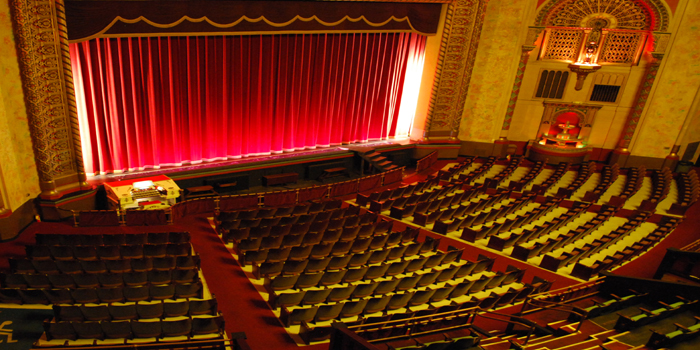 The Producer The producer is responsible for the overall administration—raising and allocating funds, hiring personnel, and overseeing all aspects of production. Large productions may have several producers designated as executive, associate, or co-producers, each of whom may be responsible for a specific aspect of the show. Someone may be listed as a producer by virtue of the amount of money invested. An organization can be a producer, as was the Theatre Guild, a group responsible for some of the most important productions on Broadway from the 1920s to the 1940s. In such arrangements, of course, individual members of the organization still supervise.
The Producer The producer is responsible for the overall administration—raising and allocating funds, hiring personnel, and overseeing all aspects of production. Large productions may have several producers designated as executive, associate, or co-producers, each of whom may be responsible for a specific aspect of the show. Someone may be listed as a producer by virtue of the amount of money invested. An organization can be a producer, as was the Theatre Guild, a group responsible for some of the most important productions on Broadway from the 1920s to the 1940s. In such arrangements, of course, individual members of the organization still supervise.
For a new commercial production, the producer contracts with a playwright for a script; raises funds from private investors called “angels” (who may invest after seeing a fragment of the play at a special staging known as a backer’s audition); hires the artistic and technical staff; rents a theatre and all the necessary equipment for the stage; and oversees publicity, ticket sales, and all the financial aspects of the production. Box-office operations are handled by a general manager. In theatre companies that do repertory, a season of several plays, the producer may be responsible for selecting the repertoire, although this is often the task of the artistic director. The producer also arranges tours, subsidiary productions, and the sale of subsidiary rights, including film, television, and amateur production rights. Most theatres also have a theatre or house manager, responsible for theatre maintenance and audience control.
The Director : The director makes all artistic or creative decisions and is responsible for the harmonious unity of a production. The director, usually in conjunction with the designers (and perhaps the producer), determines a
concept, motif, or interpretation for the script or scenario; selects a cast, rehearses them; and usually has a deciding role in scenery, costumes, lights, and sound. Movement, timing, pacing, and visual and aural effects are all determined by the director; what the audience finally sees is the director’s vision. From the time of the ancient Greeks until the 17th century this role was generally fulfilled by the playwright, and from the 17th to the end of the 19th century directing was the function of the leading actor of a company. Under such conditions, however, ensemble performance was rare.
REHEARSALS
The play is broken into units and tested to find how the whole can be made to work at every performance. Spot things that could impair success and deal with them. Identify the units and suggest ways of looking at them. Pre-rehearsal work will show you :

Who is in it and why?
Why it is written as it is?
Share all this with the cast and get them to think about what the play demands of them. Their ideas my not be yours, and conflict can arise when you or try a short cut or a too-elaborate route. The play itself is your target, and you must always keep that in sight.
Rehearsals should be hard work but not tense. If tension arises it is probably because the director is ill prepared or is prepared only one way and cannot recognize the value of flexibility. Before a rehearsal starts establish what you want without being rigid about how to achieve it. If you do this actors will be more convincing as they will be working on something they can understand. As director you will be expected to have all the answers. Do not give them away all the time. If an actor is stuck try to discover why by retracing your steps to that point. Your solution to someone else’s problem may not be the best one.
Now is when you activate your rehearsal schedule. Each rehearsal has been planned to examine a particular part of the play, which you have defined through characters, their relationships and story elements, and should help only with the work you think necessary. Beware of separating actors who do not get on, or of working more with those who like you or work better with you.

Remember, too, that all departments work from the schedule, the production’s backbone, and must be at once of any major change in it.
Everyone – including you – will be nervous, but you must try not to show it. As director you are in a strong position. The others are there because you believe you can all work together. If you are well prepared you have no reason to worry.
The audience will see a whole play, but you and the cast will be seeing it but by bit, putting it together over the coming weeks. Do not put on a impressive ‘director’ act. You are with colleagues who want to know what you think, but are equals. You have to work together.
You are half way through your work; the actors are just starting. Do not flash your knowledge and preparation around; share it. Tell your cast the problems – and the objective, putting on a good show by solving them. Above all make it clear that you think your cast can sole any problems.
Most actors read a play with their own roles mainly in mind. You read it for its total effect. In your introduction state clearly :
What you think the play’s story is?
How you think the author tells that story?
How you propose telling it from the stage?
What the play means is not so important at this stage; right now what is needed is a wimple, clear objective, challenging but not impossible, that excites the actors without intimidating them.
Your performance space can be an all or an enemy. You must know its strengths and weaknesses and work with them throughout production. If your conception of the play is to be realized you must keep in mind the qualities of the stage while planning sets blocking and rehearsing depth. Otherwise you will be depressed by the difference between what you imagined and what you see, and will have to work overtime adjusting the production.
Pinpointing the action. the most important thing in a play is which happens. It is what the audience sees and what the actors must know before there can be a performance. Your actors have to be clear about it, so you must be.
Read the play, see how the whole action is presented and decide what each character contributes. Discuss with the actors what happens and listen carefully to their comments. In rehearsal, questions like. What happens here? and ‘What do you want? can be hard to answer. An actor may offer a complicated answer. Instead of rejecting it, work it through and help the actor to understand what the character knows about the story at any given point. Actors may base characterizations on their knowledge of the whole play, which endangers the unfolding story. Plays often show people changing in the face of unusual circumstances; the differences between them at the beginning and at the end must be preserved. In acting the changes are important.
By Sanjay Wankar












